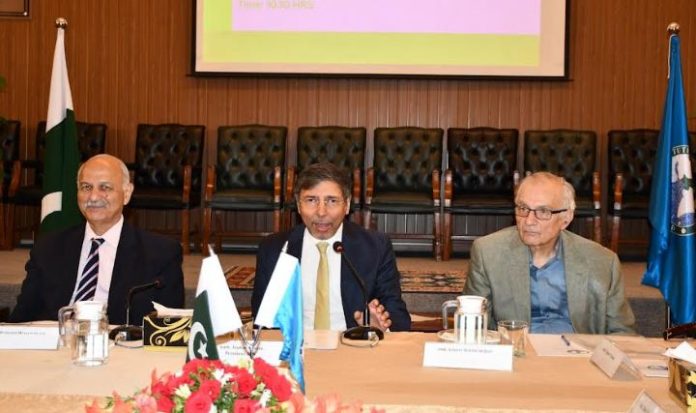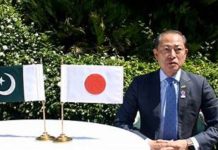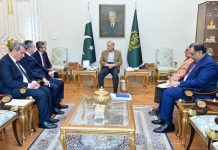ISLAMABAD, AUG 23: /DNA/ – “Pakistan is against a regional situation similar to witnessed during Cold war years and disagrees with joining camps to counter any country, especially against its trusted friend China”. This was stated by Senator Mushahid Hussain Sayed as a keynote speaker at an event titled, “US’ Asia-Pacific Strategy: Implications for Pakistan-India Relations”, organized by the Institute of Regional Studies (IRS).
Another keynote speaker, Ambassador Ashraf Jehangir Qazi stressed that the change of nomenclature Asia-Pacific to Indo-Pacific for a containment strategy by the US had placed India in a central role fancying targeting China. But China was unlike the former Soviet Union, and could not be challenged and defeated, by no means through empowering India. He stressed that to avoid a dangerous global conflict, Pakistan must stay clear of any part in such hostile endeavours. He also emphasized that China had never projected itself as a super power but only emerging global power.
Earlier, In his opening remarks, President IRS, Ambassador Jauhar Saleem, brought out how the emerging ‘Cold War’ was fraught with grave risks for global peace and stability. He also underlined that India was misusing the western support being extended to build it as a counterweight to China to instead pursue its hegemonic policies in South Asia, and undermine Pakistan. The West was mistaken in seeing India as a reliable partner, since India was adept at playing all sides in the name of so called strategic autonomy.
Ambassador Zameer Akram, adviser SPD, pointed out that under the so called Indo- Pacific strategy, many analysts believed that the US intended to act as a full-spectrum dominant power, with evident control of sea lanes to counter China’s rise. For this objective, the US had even expanded the scope of NATO from Europe to Middle East and Asia, so to contain China. He also highlighted that the US backing had emboldened India which was emerging as an aggressor in the region.
Professor Zafar Jaspal stated that India and the US already have a threshold alliance. In view of the aggressive policies of Prime Minister Modi, capacity building of India by the US as a non-NATO ally posed a serious challenge for Pakistan. However, while India was ostensibly working for American interests and receiving assistance accordingly, its regional challenges were multiplying because of its aggressiveness which was exposing its limitations and duplicity.
Prominent security expert, Syed Muhammad Ali noted that China doesn’t seek regional and global hegemon status; rather China was economically countering US influence in regions all over the world by building mutually beneficial partnerships. It was also noted that within the region, India’s act of aggression was witnessed in case of Pulwama, Galwan, and in IIOJ&K. Exploiting US support, India had been getting away with its aggressive actions on foreign lands, including targeted terrorism.
The event was attended by a latge number of diplomats, academicians, researchers, journalists and students.

















